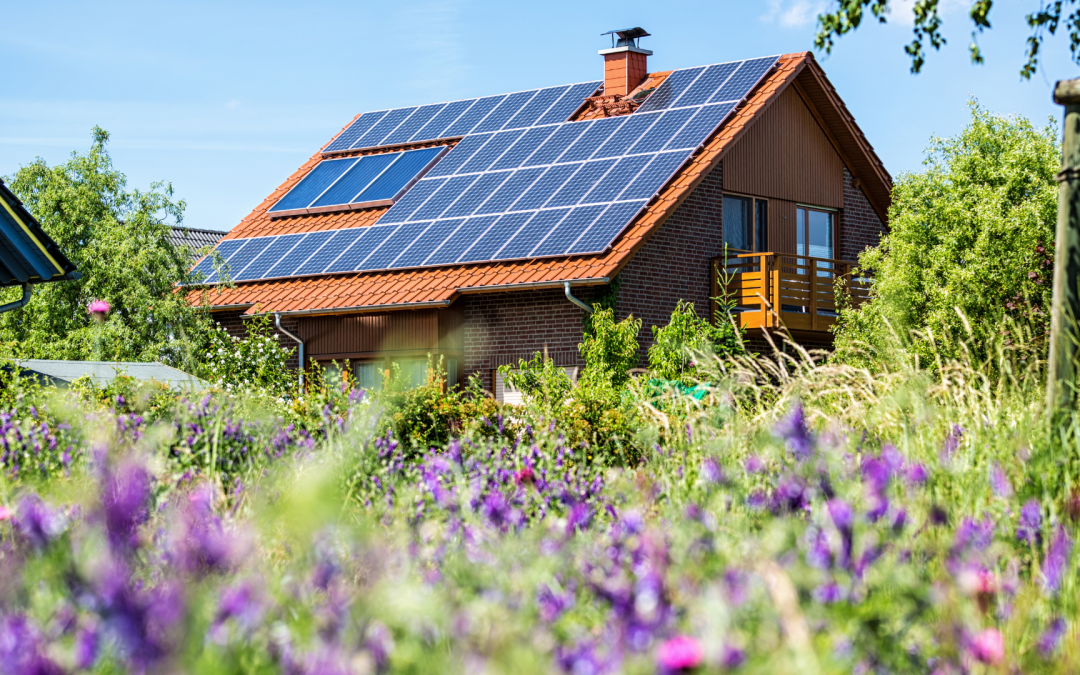Energy independence is an increasingly popular goal for homeowners who want to reduce their reliance on utility companies and take control of their energy consumption. Solar energy plays a pivotal role in achieving this independence by offering a clean, reliable, and cost-effective solution. From reducing utility bills to providing power during outages, solar systems empower homeowners to secure their energy future. Here’s how solar energy can help achieve energy independence.
Understanding Energy Independence
Energy independence means producing and managing your energy needs without relying entirely on external providers. For homeowners, this translates into the ability to generate electricity on-site, store excess energy, and ensure a reliable power supply regardless of utility grid disruptions or price fluctuations.
Solar Panels: The Foundation of Energy Independence
Solar panels are the cornerstone of any energy-independent system. By converting sunlight into electricity, they allow homeowners to generate their own renewable energy. The benefits include:
- Reduced Utility Dependence: Solar panels produce electricity that can power your home during the day, significantly reducing the amount of energy you draw from the grid.
- Lower Energy Costs: Generating your own electricity can lead to substantial savings on monthly utility bills. Over time, these savings can offset the initial investment in solar installation.
- Environmental Impact: Beyond financial benefits, solar panels contribute to a cleaner environment by reducing greenhouse gas emissions and reliance on fossil fuels.
The Role of Battery Storage in Energy Independence
While solar panels generate electricity during the day, they don’t produce power at night or during cloudy weather. This is where battery storage systems come into play. Batteries store excess solar energy generated during peak sunlight hours for use when the panels aren’t producing electricity. Key advantages of battery storage include:
- 24/7 Energy Access: Stored energy ensures you have power at night or during overcast days.
- Resilience During Outages: A battery backup system can keep essential appliances and devices running during grid outages, providing peace of mind and safety.
- Enhanced Savings: By storing and using energy during peak utility rate times, homeowners can maximize their savings.
Grid Independence vs. Grid-Connected Systems
Achieving complete energy independence often involves disconnecting entirely from the utility grid. However, many homeowners prefer grid-connected solar systems that offer flexibility while reducing dependency. Here’s how both options work:
- Grid-Connected Systems: These systems allow homeowners to use solar power during the day and draw from the grid when needed. Net metering programs enable homeowners to sell excess energy back to the grid, further lowering costs.
- Off-Grid Systems: Off-grid setups involve complete energy independence with no reliance on the utility grid. These systems typically require larger battery storage and backup generators to ensure consistent power.
Financial Incentives and Energy Independence
Governments and utilities offer various incentives to encourage solar adoption, making energy independence more attainable. These include:
- Federal Tax Credits: The Solar Investment Tax Credit (ITC) allows homeowners to deduct a significant percentage of their solar installation costs from federal taxes.
- State and Local Incentives: Many states offer rebates, tax credits, and grants to reduce the upfront cost of solar systems.
- Net Metering Programs: By earning credits for excess energy sent to the grid, homeowners can offset costs and improve their return on investment.
Energy Independence During Power Outages
Power outages are becoming more frequent due to extreme weather events, aging infrastructure, and high energy demand. Solar systems with battery storage provide a reliable solution to this challenge by ensuring uninterrupted power. Homeowners can prioritize critical systems, such as refrigeration, heating, and medical devices, during outages, enhancing their resilience and safety.
Case Studies: Success Stories in Energy Independence
Across the country, homeowners are achieving energy independence with solar solutions:
- California: A family in Los Angeles installed a solar-plus-battery system, reducing their annual energy costs by 80% and ensuring uninterrupted power during rolling blackouts.
- Texas: After experiencing widespread outages, a homeowner in Austin invested in solar panels and a battery backup system, eliminating their reliance on the grid.
- Florida: A coastal homeowner used solar panels with hurricane-resistant mounting and a backup battery to weather storms while maintaining power.
Solar energy is a powerful tool for homeowners seeking energy independence. By combining solar panels with battery storage and taking advantage of incentives, homeowners can reduce their utility dependence, lower costs, and ensure reliable power in any situation. As energy costs continue to rise and grid reliability becomes a growing concern, investing in solar is a smart and sustainable way to take control of your energy future. Embracing solar energy not only benefits individual homeowners but also contributes to a cleaner, more resilient energy grid for all.


Recent Comments